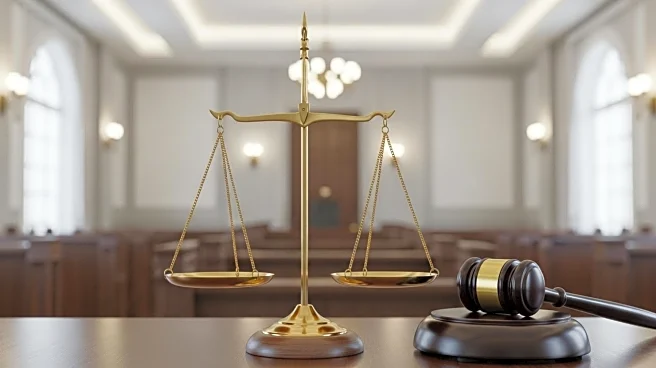What's Happening?
Vietnam's largest conglomerate, Vingroup, has initiated legal proceedings against 68 individuals and organizations, accusing them of spreading false information about the company and its leadership. The lawsuits target content on platforms like TikTok, Facebook, and YouTube, which Vingroup claims have damaged its reputation. Allegations include false claims about the company's financial stability and the origins of its VinFast electric vehicles. Vingroup disputes rumors of having VND800 trillion in debt, stating its actual borrowings are VND283 trillion, which it considers safe by international standards. The company is pursuing legal action both domestically and internationally, aiming to address violations of Vietnam's Cybersecurity Law and Penal Code.
Why It's Important?
This legal action by Vingroup represents a significant move in combating online misinformation, highlighting the challenges corporations face in controlling narratives in the digital age. The lawsuits could set a precedent for how businesses in the region address digital defamation, especially given the lax monitoring of defamatory content in Southeast Asia. The outcome of these cases may influence how companies globally approach similar issues, potentially leading to stricter regulations and enforcement against online disinformation.
What's Next?
Vingroup plans to collaborate with foreign lawyers to file cases in countries where the accused individuals reside. The company also intends to notify relevant foreign embassies, framing the online attacks as violations of Vietnam's laws. The legal proceedings will test the effectiveness of international cooperation in addressing cross-border digital defamation, and the results could impact future corporate strategies in dealing with online misinformation.
Beyond the Headlines
The aggressive legal strategy by Vingroup underscores the growing importance of protecting corporate reputation in the social media era. It raises questions about the balance between free speech and the spread of false information online, and how legal systems can adapt to address these challenges. The case also highlights the role of social media platforms in monitoring and managing content that could harm individuals or businesses.











